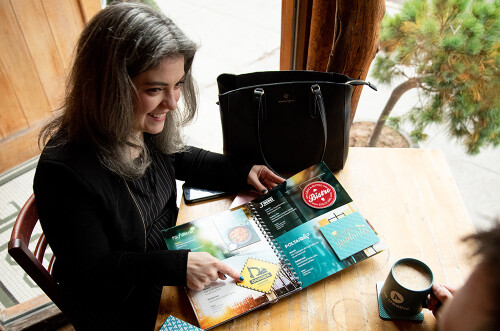Let's work together to tell your storyto build your brandto drink more coffee
We'd love to get to know you.
CW Print + Design is now CW Creative! Learn More
Finding the Off Switch
Do you find that you never really leave work once the work day is over? Your thoughts keep racing and you find yourself to restless to even sick?
It’s not only the fact that you work hard and enjoy your work; it’s also due to the fact that in this mobile generation many of the devices we use are built to tether us to the desk. A study of 3000 workers in the UK showed that 69% regularly work outside their office hours, and the average worker fails to use six days of paid leave each year.

In this atmosphere, one has to ask: are you preserving your own well-being?
Digging Your Own Grave
When our parents used to say, “Hard word never killed anybody”, they probably had not looked at the data. According to research, men who are unable to mentally relax after work are three times more at risk of contracting heart disease. According to Mark Cropley, a psychologist studying health and stress at the University of Surrey, the inability to detach from your daily grind brings about dire consequences:
“Inadequate psychological recovery, or poor disengagement from work, is associated with a range of health problems including cardiovascular disease, fatigue, negative mood and sleep disturbance,” Cropley said.
What is the difference between an industrious person and a workaholic? According to experts, unlike a workaholic, an industrious person can go beyond typical working hours but still remains emotionally present for others. They can sustain and enjoy fulfilling relationships and deliberately schedule time during which they indulge in leisurely activities. Industrious people are able to experience stress that comes with deadlines, and then follow them with purposeful shortening of hours to restore depleted energy.
Workaholics are unable to find their ‘off switch’. And not even knowledge of the troubling facts that come with the stressful lifestyle they lead is enough to curb their unrealistic ideals. Workaholics are obsessed about work and the adrenaline rush it brings. They walk fast, talk fast, eat fast, and never delegate anything for fear that other people will “not do it to perfection”.
On the outside workaholics seem healthy, but underneath, the effects of their choices are present: panic attacks, physical distress, claustrophobia, depression, weakened immune system, sleeplessness, and an inability to unwind enough to enjoy the simple pleasures of life.
Workaholics struggle with cynicism, emotional fatigue, and have an increased risk for metabolic syndrome, and recovery. With a biological system that constantly works at elevated set points, workaholics are at greater risk of developing cardiovascular disease, having diabetes, and dying.
Are these descriptions landing a little too close to home for your comfort? Here are a few points to help you know how close you are to being a workaholic:
Quality Trumps Quantity
Sometimes, less is more. Here are a few ways to help reduce the work on your hands so that you concentrate on doing a few things well.
Take care of yourself and stay healthy. This keeps you on top of your game and leads to more quality output later on.
Table of Contents
We'd love to get to know you.

